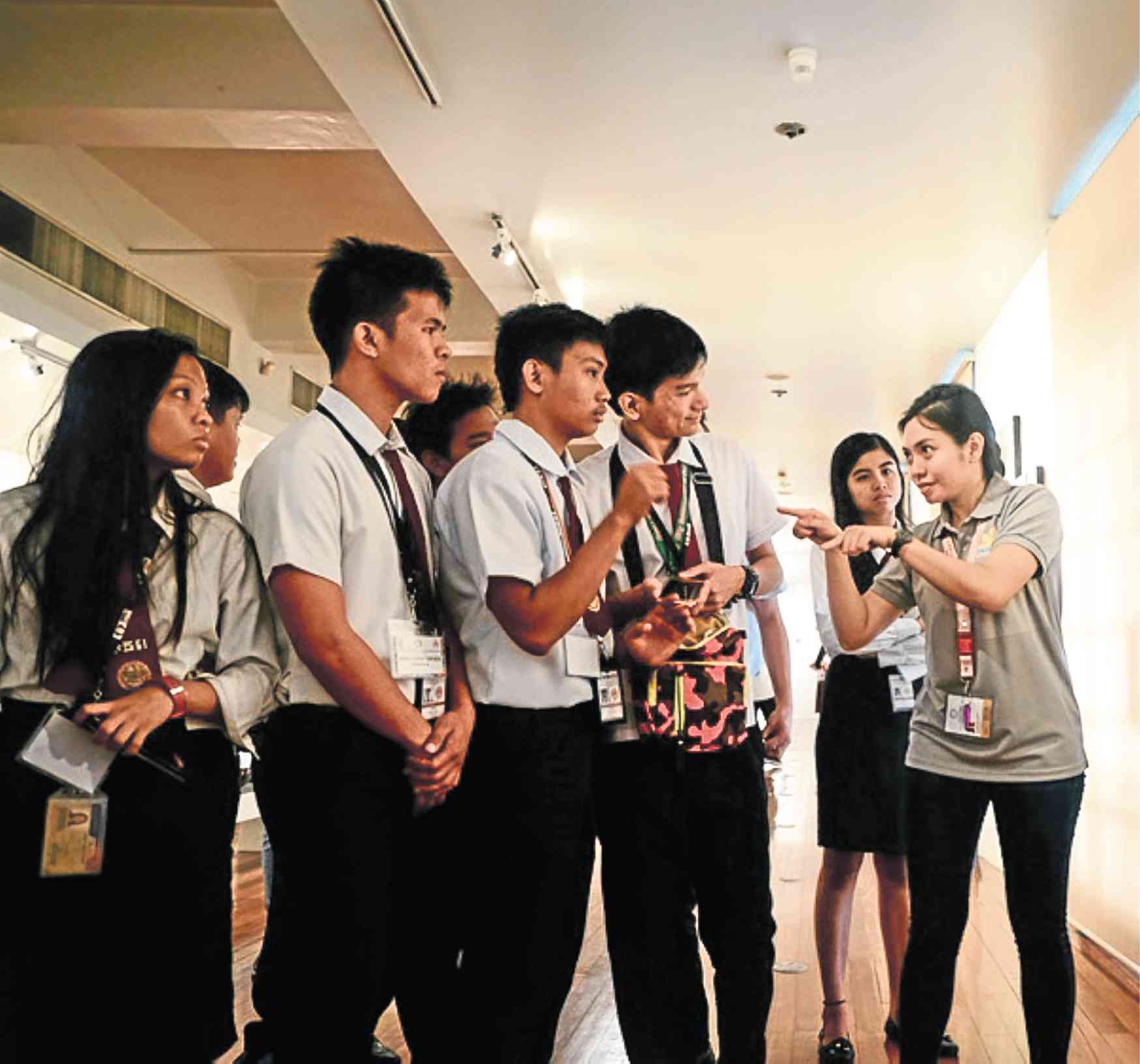
INCLUSIVE TOURISM Catherine Ballen, one of the first 13 deaf tour guides trained and accredited by the Department of Tourism, explains the exhibits at the National Museum to students from the Philippine School of the Deaf. —PHOTOS COURTESY OF THE DOT
A tour of historic sites in Manila — and later in other parts of country — can now be enjoyed by persons with special needs after the Department of Tourism (DOT) accredited its first deaf tour guides.
The DOT on Wednesday said it had chosen 13 deaf tour guides “to foster a nonhandicapped educational tour with inclusivity as a guiding principle for sustainable growth and development in tourism.”
To be accredited, they completed a seven-day training program in March based on a module provided by the DOT, according to Nelly Dillera, director of the DOT’s Office of Industry Manpower Development.
At present, only 27 deaf tour guides have passed the training conducted by the DOT-OIMD in partnership with the De La Salle-College of Saint Benilde’s School of Deaf and Applied Studies.
“There are already existing institutions like the DLS-CSB that have programs like this for tourism and tour guides. We are partnering with them so that these community training programs will be implemented not only in Metro Manila but also in other regions,” Dillera said.
Catherine Ballen
For their first assignment, the 13 newly-minted deaf guides gave 30 students from the Philippine School for the Deaf a tour of Rizal Park, Fort Santiago and the National Museum in Manila.
“Having tour guides skilled with knowledge of sign language and an understanding of the services needed by persons with disabilities is a must under the DOT’s thrust for barrier-free tourism,” Tourism Secretary Bernadette Romulo-Puyat Puyat said in a statement.
“Not only will this provide quality service to tourists with special needs, but more importantly, this will create opportunities, which are the very essence of an inclusive tourism industry,” Puyat added.
The effort is also in line with Republic Act No. 7277, or the Magna Carta for Persons with Disability, which mandates the state “to develop the PWDs’ skills and potentials to enable them to compete favorably for available opportunities,” she added.